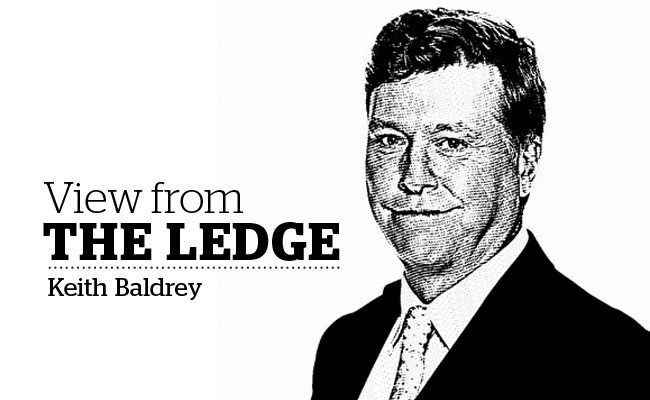As we head into a new year, it appears more than likely that many of the issues that dominated B.C. politics in 2015 will re-emerge in the coming 12 months.
After all, we are a polarized province. People line up on opposite sides of many issues, and the result is often friction, protests and controversy. The coming year will be no different.
Take the multi-layered texture of the energy issue.
Whether it’s oil pipelines, liquefied natural gas plants, coal shipments, renewable resource projects or simply the cost of filling up your car, chances are that energy-related issues will dominate headlines in 2016.
The proposed Kinder Morgan pipeline is approaching the finish line, although it’s not yet clear whether it will actually cross it and become a reality. If it ever does gain approval, mass protests – likely to include widespread acts of civil disobedience – will turn B.C. into a major battleground of political wills.
This has the potential of making the fabled anti-logging protests in Clayaquot Sound in the 1990s look like a group hug. The anti-pipeline lobby may not represent a strong majority of public opinion, but it is a well-organized (and well-funded) lobby.
Construction of the Site C dam has begun, but it faces certain court challenges and likely civil protests next summer (once the weather in the north is more conducive to standing outside for long periods of time).
In fact, the dam could evolve into a critical election issue by 2017. The B.C. Liberals and the NDP have taken polar opposite positions on the dam’s construction, and each seem to think the public backs their particular stand. We shall see.
And court challenges and protests will also become lashed to various proposed LNG projects. As any of them edge closer to reality, count on any controversy over them to become louder and louder.
And if we don’t actually see any company make a “final investment decision” on actually going ahead and building a facility, that may put increasing heat on Premier Christy Clark, who has gone all in on the LNG industry.
It’s likely the perennial hot button issue of transportation (at least in the Metro Vancouver region) will also dominate political debate in 2016.
While the B.C. Liberal government has arbitrarily decided the new Massey Bridge (to replace the tunnel) as its top priority when it comes to major projects, the region’s mayors favour other proposed projects, such as light rail in Surrey, a new Pattullo Bridge and a subway line down Broadway in Vancouver.
But the mayors and the province remain vexed on how to pay for everything, which means that debate will continue for some time. Meanwhile, the federal government is about to dangle a lot of cash in front of all the parties, which may finally force some compromises to get things built.
And we’ll see how the relationship between the B.C. government and the new federal Trudeau government develops over the year. Will it be an extended honeymoon, or will tension between the two arise?
Chances are we’re going to be seeing Trudeau out in B.C. a fair amount, so keep an eye on how many events both he and B.C.’s premier attend at the same time for an indication of how they’re getting along.
What else is a safe bet for controversy in the coming year?
Even with an expected budget increase, the children and families development ministry will remain a beleaguered entity and in the news fairly often, for all the wrong reasons. The problems the ministry deals with are simply too complex and difficult to expect a perfect record when it comes to caring for children and youth in government care.
But even many young people not in government care are facing significant problems. The issue of poor mental health among youth is approaching near-epidemic proportions in B.C. schools, according to any number of teachers who witness problems associated with it every day.
And given that this is B.C., expect even more protests over other issues, including one that has been simmering for some time – logging practices on Vancouver Island.
The year ahead should indeed be a lively one in B.C. politics, as is the norm.
Keith Baldrey is chief political reporter for Global BC. He can be reached via email at [email protected].
What are your thoughts? Send us a letter via email by clicking here or post a comment below.



